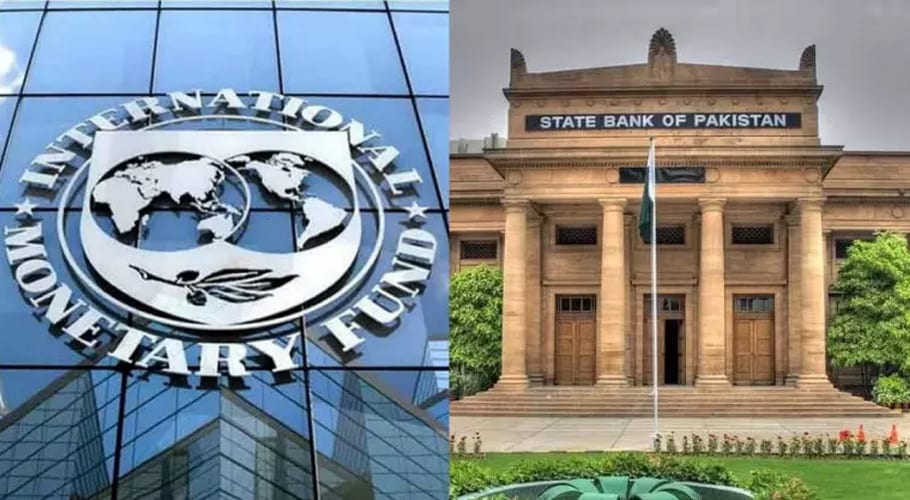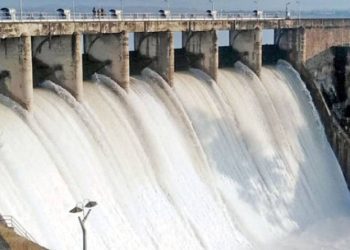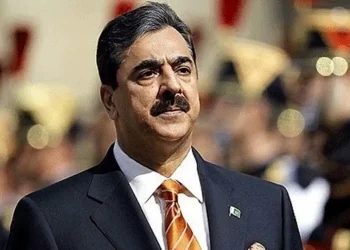There is quite a stir in the policy circles and media after the Ministry of Finance recently released a proposed draft of the State Bank of Pakistan (SBP) Amendment Act 2021 to make the central bank an independent institution under the terms of the International Monetary Fund (IMF). Economic experts and senior journalists jumped on the burning topic and speculated on extensively circulated snippets of what was apparently an old draft.
Others have expressed anger over the hush-hush nature of the process as report mills propose that the modifications may be ratified through a presidential ordinance as a prior condition of the International Monetary Fund board approval. Others are too grave on the supposed enhanced autonomy of the central bank. To what extent these claims are true or false, let’s look at different facts in this regard.
Key points of the Amendment Act 2021
The proposed draft, which the government authority’s claim is aimed at making the State Bank of Pakistan (SBP) independent, will practically give protection to top officials of the bank as no investigating agency can initiate any action against them without obtaining authorization from the board of directors of the central bank, according to a clause in the proposed SBP (Amendment) Bill 2021.
The same clause will also be valid to SBP’s former governors, deputy governors and directors if the bill is approved into law by parliament. Under the proposed amendment act, the SBP will not issue loans to the government, its main purpose being to stabilize local prices and the economy and to support economic policies. Changes have also been made in the tenure and removal of the Governor SBP.
As per the bill, the governor, deputy governors, directors, members of any monetary policy committee and board committee, officers and employees of the Bank shall not be accountable in their personal capacity for any act of commission or omission done in their official capacity in good faith and in case of any such proceedings, they shall be indemnified by the bank, which shall bear all the expenses thereof, till the final decision of the case.
Discontinuation of quasi-fiscal process
At present, the SBP is mandated to perform quasi-fiscal operations, including industrial credit, rural credit, export credit, housing credit and loan guarantees. Although, a proposed bill says that quasi-fiscal operations, defined as monetary actions taken on behalf of the federal government, shall be stopped.
But, refinancing facilities, which the center has exercised to support access to credit in underserved divisions, shall still be permitted. The SBP secures economic stability and fuller consumption of the country’s prolific resources, the existing rules say. Although it has been projected that the primary aim is the domestic price strength, a secondary goal is a financial immovability, and the tertiary aim is to support the government’s economic strategies to promote growth and fuller utilization of reserves.
The proposed amendment says the approved capital should be Rs500 billion paid-up capital (initial) currently, the central bank is being given with endorsed and paid-up capital of Rs100 billion. At present, there is a monetary and fiscal policies harmonization board and under the proposed law SBP’s functional and institutional autonomy is being strengthened and the method for coordination between the central bank and government is being modified.
What is reality?
In fact, the government is acting in alacrity given the instruction of the International Monetary Fund and is evidently rushing the process along in order to meet time limits for prior actions before the Fund program can be restarted. However, haste in legislation is never a good omen. So long as the manner of economic policy remains improvised and in firefighting mode, no legal outline will be adequate to bring order to it.
The proposed amendments to the SBP Act must include a more robust method for parliamentary oversight, and they must enjoy harmony within parliament to be useful. Otherwise, the workout will be little more than a pro forma set of actions speedily employed to meet IMF directions and to undo the next tranche of the Fund program. The authorities in the government must not seek to bind the hands of all its successors into a tricky legal framework they never consented to.
Why institutional reform controversial?
On the other hand, the State Bank is eventually a public organization, not a private one, and it cannot and must not enjoy the sort of immunity from the public inquiry of its actions that come with its task or job. If it is permitted to become as entirely independent as the proposed amendments to the SBP Act envision, it will create a perverse incentive for future governments to hire a weak individual as governor in line to retain some control of the office.
This will impede the SBP more in pursuit of its interior mission than would some built-in mechanisms for parliamentary oversight. The public concerns and confusion over the proposed bill may continue even after its passage from the parliament.
The most excellent way of resolving these concerns is to further boost parliamentary oversight of the bank’s operations. Despite making institutional reform controversial the SBP’s internal accountability system must also be strengthened so that the country’s economic growth can move in a positive direction.




































